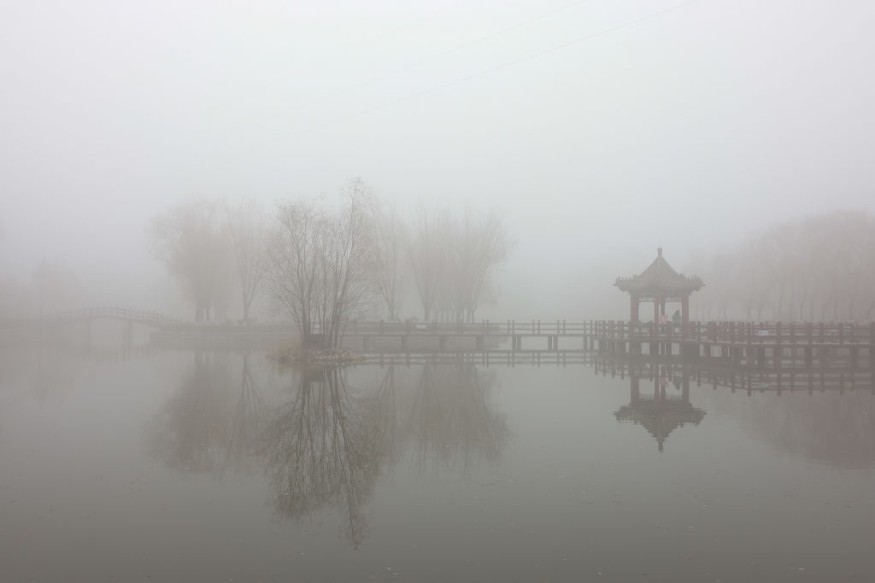China has pledged to power the Beijing Winter Olympics using only wind, hydro and solar energy amidst dependence on coal to power almost two-thirds of its economy.
A Phys.org report specified that the country wants to use the sports event to "showcase its green credentials." However, there are some apprehensions over the environmental costs of the Games, which are dependent on artificial snow in one of the country's driest places.
It is quite a challenge to independently validate the claims of Beijing around the games, slated for kickoff on February 4, and according to environmentalists, they are afraid that there would be a backlash from authorities if they investigate the green targets of Beijing.

China's Promise
One of the three Olympic venues, Zhangjiakou, has mounted wind farms that span hundreds of acres that can yield about 14 million kilowatts of electricity, which is akin to the power Singapore can generate.
Additionally, authorities have covered mountain-sides as well, with solar panels that they say will produce seven million kilowatts more.
In an AFP report, Beijing Olympics' organizing committee said, China constructed a "dedicated power plant," taking on power generated from renewable sources, storing and transmitting it to all venues of the event. It should guarantee an uninterrupted power supply, according to the committee.
However, the economy of China has depended on decades of "coal-fueled growth," not to mention, it is still constructing more coal-fired power plants than the rest of the world combined.
Concerns About the Smoggy Skies
In an attempt to clear the extremely smoggy skies before the sports event, coal stoves in 25 million northern Chinese households were replaced with either electric or gas.
More so, tens of thousands of factories were fined for going beyond their emissions limits. Steel plants surrounding Beijing have been ordered to reduce production by 50 percent, as well.
Essentially, the number of severely polluted days in the country's capital dropped to 10 last year compared to 43 in 2015, according to the environment ministry. However, the air quality of the city still constantly goes beyond the standards of the World Health Organization.
An assessment by Greenpeace in 2015 specified that the biggest lesson from the 2008 Olympic Games" that took place also in Beijing, has been the realization that moving dirty industries to nearby provinces does not result in lasting air-quality movements.
Over 600 Hydrogen Buses for Transportation
Xinhua news agency reported that around 655 hydrogen buses would be deployed to transport the officials and athletes during the Olympics.
According to the organizers, about 85 percent of vehicles used for the Winter Olympics will run on either hydrogen or electricity.
Given that only local audiences will be allowed to attend the event because of the pandemic, and even those figures look quite limited, flight emissions are possible to be lower than the average Olympics. Relatively, the COVID-19 has greatly reduced the international flights to China, as well.
A Man-Made Snow
In similar news, The Straits Times reported the events in the dried mountains of Zhangjiakou and Yanqing, north of Beijing, will depend on "man-made snow."
Artificial snow has been used to changing degrees since the 1980 Winter Olympics held in New York's Lake Placid.
China has approximated it will need roughly 49 million gallons of water to make artificial snow for sports events like skiing and snowboarding, a 2019 blueprint by the national economic planner of the country specified.
Channel News Asia said in a similar news report that the water would be sourced from "reservoirs in Zhangjiakou." It would account for below one percent of the city's water supply.
Meanwhile, snowmakers have said, the water used to make snow has no chemical additives, so when it melts, it will reenter the soil naturally.
Report about China's initiative to hold a "Green Olympics" is shown on Reuter's YouTube video below:
RELATED ARTICLE: Tokyo Olympics: Who Needs More Time for Training to Beat the Heat in Japan Between Male and Female Olympians?
Check out more news information about Environment & Climate only on Science Times.
© 2026 ScienceTimes.com All rights reserved. Do not reproduce without permission. The window to the world of Science Times.











